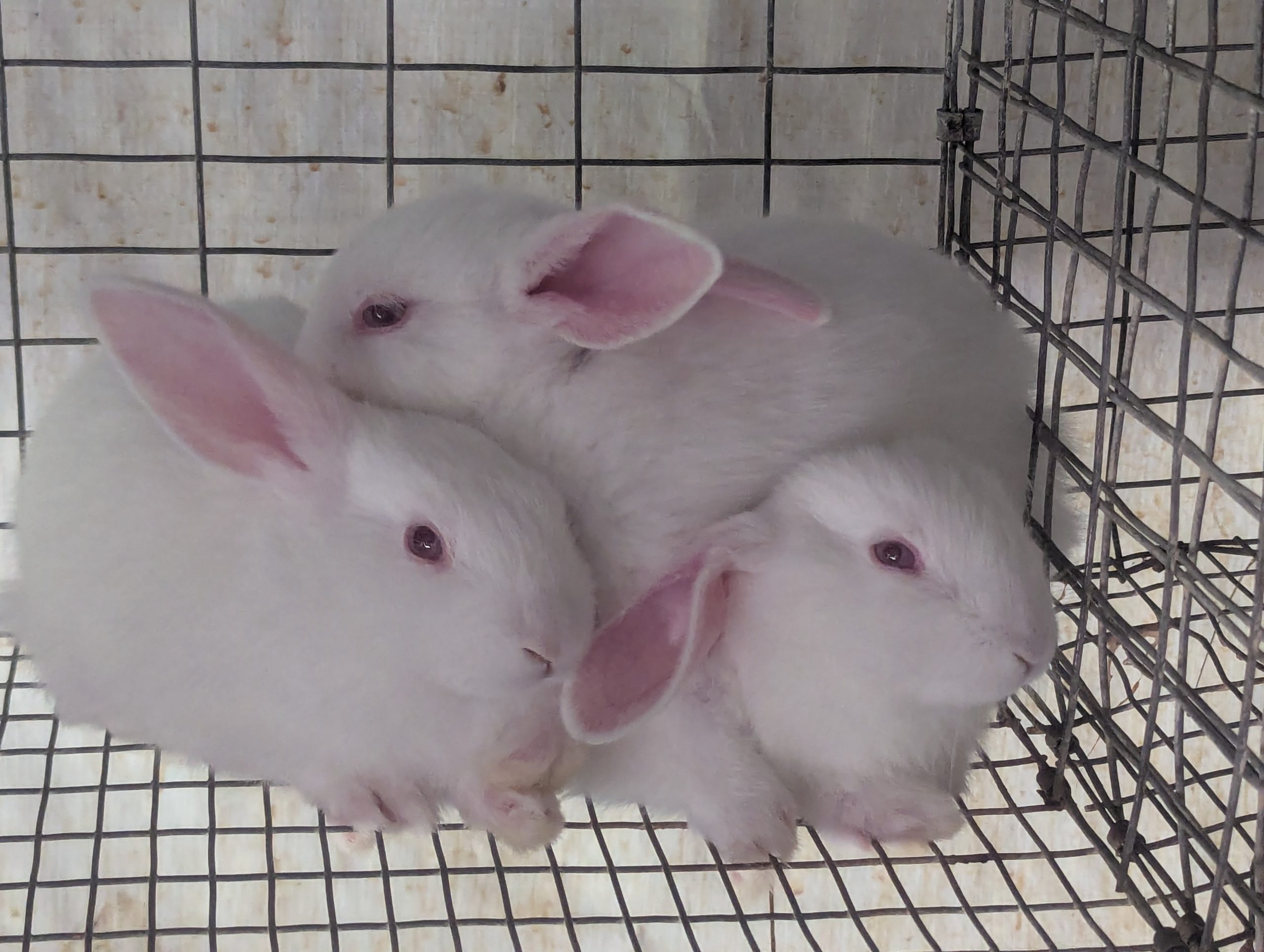Your cart is currently empty!

Weaning Enteritis in Rabbits: Causes, Symptoms, Prevention, and Treatment
Weaning enteritis is a serious gastrointestinal disorder affecting young rabbits, particularly those transitioning from mother’s milk to solid food. It occurs most commonly in rabbits between 4 to 10 weeks of age and can be fatal if left untreated. Understanding the causes, symptoms, and preventive measures is crucial for rabbit breeders, pet owners, and farmers.
This article explores everything you need to know about weaning enteritis, including its diagnosis, treatment, and how to reduce its risk in young rabbits.
What is Weaning Enteritis?
Weaning enteritis is a form of enteritis (gut inflammation) triggered by the stress of dietary transition from milk to solids. As young rabbits adjust to eating pellets, hay, and fresh greens, their digestive system becomes vulnerable to bacterial overgrowth, intestinal inflammation, and severe diarrhea.
Weaning enteritis is responsible for significant mortality in young rabbits, especially in commercial rabbit farms and breeding operations. It is often caused by opportunistic pathogens in the gut that flourish during digestive imbalance.
Causes of Weaning Enteritis
Several factors contribute to the development of weaning enteritis, including:
1. Dietary Changes
- The sudden transition from mother’s milk to dry food affects the gut microbiome.
- Young rabbits struggle to digest high-carbohydrate or low-fiber diets.
2. Bacterial Overgrowth
- Gut infections from Clostridium spiroforme, Escherichia coli, and other harmful bacteria.
- Weakened intestinal flora allows pathogens to proliferate, leading to diarrhea.
3. Stress and Weaning Process
- Early weaning (before 6 weeks) increases the risk of gut instability.
- Social separation and environmental changes lead to stress-induced digestive issues.
4. Poor Hygiene and Contaminated Food
- Exposure to dirty cages, infected water, or contaminated feed.
- Unclean feeders can harbor harmful bacteria.
5. Low Fiber Diet
- Lack of dietary fiber causes poor gut motility and dysbiosis.
- High-carbohydrate foods (like excessive pellets or treats) worsen gut health.
6. Antibiotic Use
- Some antibiotics disrupt the gut microbiome, triggering bacterial imbalances.
Symptoms of Weaning Enteritis
Early detection is crucial to prevent fatalities. Common symptoms include:
- Watery or mushy diarrhea
- Loss of appetite
- Lethargy and weakness
- Bloated abdomen
- Weight loss
- Reduced grooming behavior
- Dehydration (sunken eyes, dry mouth)
- Hunched posture and discomfort
- Death within 24-72 hours in severe cases
⚠ Emergency Alert: If a young rabbit develops severe diarrhea, urgent medical attention is needed to prevent dehydration and death.
Diagnosis of Weaning Enteritis
Veterinarians use several methods to diagnose weaning enteritis:
- Clinical Examination – Observing symptoms like diarrhea, dehydration, and bloating.
- Fecal Testing – Checking for harmful bacteria or parasites.
- Blood Work – Analyzing organ function and signs of infection.
- Gut Microbiome Analysis – Identifying bacterial imbalances.
- Dietary Assessment – Evaluating food intake and nutritional deficiencies.
Early diagnosis can greatly improve survival rates and guide proper treatment.
Treatment and Management
If a rabbit develops weaning enteritis, rapid intervention is necessary.
1. Hydration and Electrolyte Support
- Rehydration therapy (administered orally or via subcutaneous fluids).
- Electrolyte solutions like Pedialyte help prevent dehydration.
2. Probiotics and Gut Stabilizers
- Probiotic supplements restore healthy gut bacteria.
- Saccharomyces boulardii and Bene-Bac help rebalance intestinal flora.
3. Dietary Adjustments
- Increase fiber intake (timothy hay, alfalfa, orchard grass).
- Reduce pellet consumption to control carbohydrate levels.
- Limit sugary treats, processed foods, and starchy vegetables.
4. Antibiotic Therapy (Vet-Prescribed)
- Metronidazole or Sulfa-based drugs may be prescribed.
- Antibiotic use should be limited to avoid disrupting the microbiome.
5. Stress Reduction
- Gradual weaning instead of abrupt separation.
- Keeping rabbits in quiet, low-stress environments.
Preventing Weaning Enteritis
Prevention is the best approach to reducing mortality in young rabbits.
1. Delay Weaning Age
- Wean rabbits at 6-8 weeks instead of earlier.
- Early weaning disrupts gut development and immunity.
2. High-Fiber Diet Before and After Weaning
- Provide constant access to hay before weaning.
- Introduce limited pellets slowly, avoiding excessive starch.
3. Probiotics During Weaning
- Natural probiotics or fermented foods support gut health.
- Supplements like Benebac and ProBios can aid digestion.
4. Clean Housing & Fresh Water
- Disinfect cages and feeding areas regularly.
- Change drinking water daily to prevent bacterial contamination.
5. Avoid Stressful Environmental Changes
- Minimize handling during the weaning phase.
- Gradual introduction to new food sources prevents digestive shock.
Weaning enteritis is a serious but preventable condition affecting young rabbits. By understanding its causes, symptoms, prevention strategies, and treatment methods, rabbit owners can ensure a smooth transition to solid foods. Maintaining proper nutrition, hygiene, and stress reduction greatly improves survival rates.
If you suspect weaning enteritis in your rabbit, immediate veterinary intervention is crucial. Proactive care, including optimal diet and weaning management, will help minimize risks and keep young rabbits healthy and thriving.
This post has already been read 91 times!

Leave a Reply